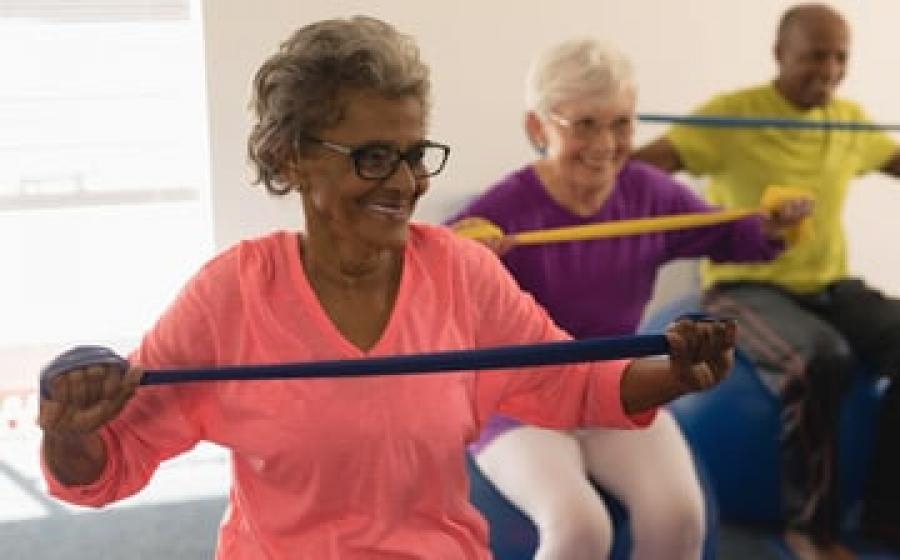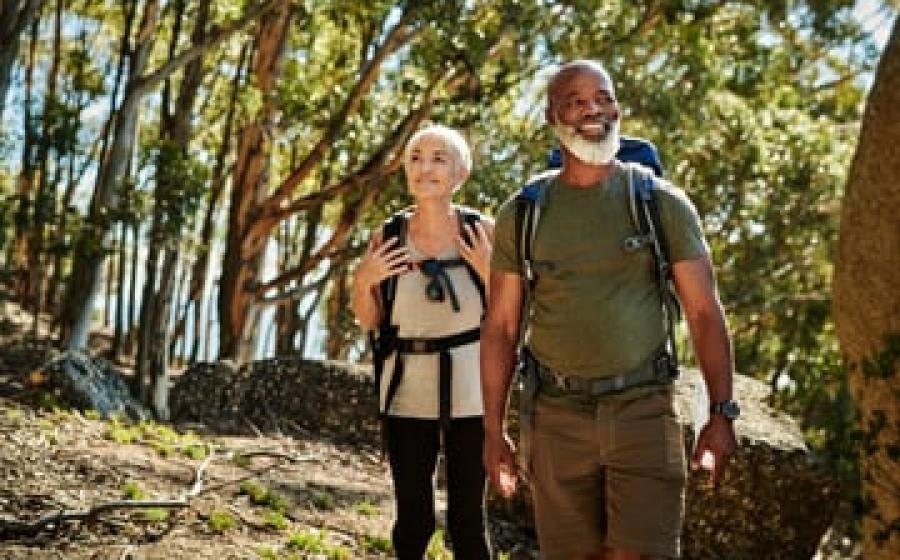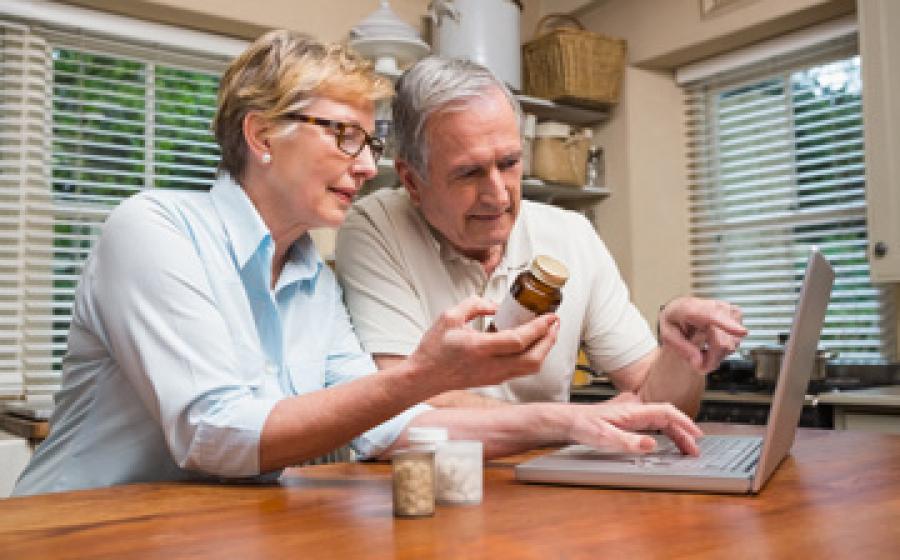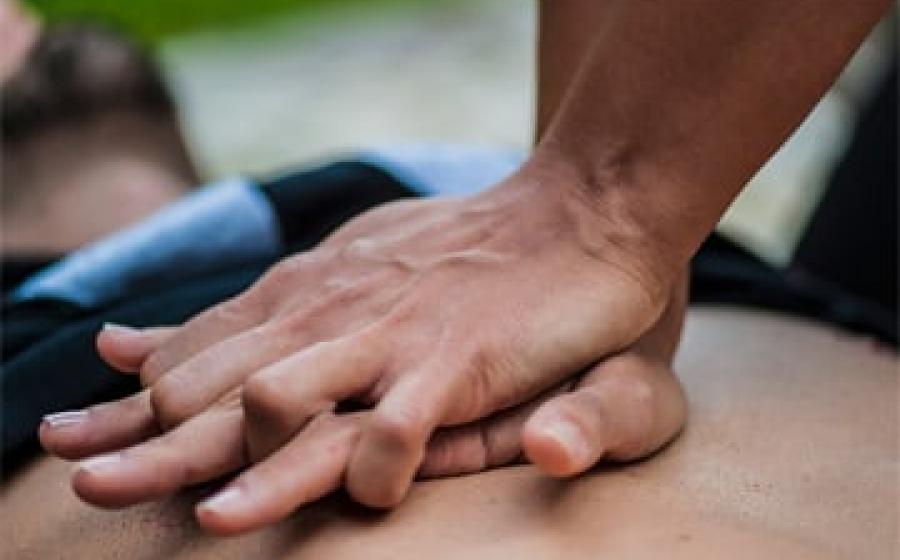A New Study Supports Shoes As A Source of Pain Relief
(NewsUSA) - One in four American adults suffers from chronic knee pain, so an accessible, non-surgical solution should come as welcome news.
- One in four American adults suffers from chronic knee pain, so an accessible, non-surgical solution should come as welcome news.
A recent study out of UCLA indicates that GDEFY® medically engineered shoes could be that solution. In fact, study participants wearing the GDEFY shoes with patented VersoShock® technology reported an average reduction in knee pain of 85%, as well as significant decreases in other common conditions.
A double-blind, randomized study conducted at Olive View UCLA Medical Center, recently published in the Journal of the American Podiatric Medical Association, shows that wearing shoes with VersoShock soles decreases knee pain by up to 85% vs. wearing shoes with conventional soles during prolonged standing and walking. After five weeks, participants using the GDEFY intervention sole shoe -- with shock-absorbing VersoShock technology -- reported an average reduction in knee pain of 85%, significantly better than participants using the traditional sole shoe (P < .01), whose average pain scores increased. Also observed were positive effects on back, ankle and foot pain in those with the intervention sole shoe, compared with the traditional sole shoe.
Alexander Elnekaveh founded Gravity Defyer Medical Technology Corporation in 2008 after his 14-year-old nephew was diagnosed with a cancerous growth in his heel. Even after successful heel surgery, physical therapy and help from leading doctors in pain management, Elnekaveh's nephew had little chance of walking pain-free again. But Elnekaveh, an inventor, wasn't satisfied with that prognosis, so he assembled a team of top podiatrists, physical therapists, biochemical and material engineers (Impact Research Technology Group) to help him develop the first Gravity Defyer (GDEFY) shoe with VersoShock technology.
"Our mission is to maximize comfort and boost performance for people who have foot biomechanics that keep them from walking properly and to enable normal pronation," says Elnekaveh.
"This study proves what we've known all along: that our breakthrough VersoShock technology provides the ultimate pain relief in a way no other shoe can."
To accommodate customers at work, home and play, GDEFY men's and women's footwear comes in several styles, widths and sizes. All shoes come with a polyurethane removable insole to adjust to one's comfort preference.
GDEFY footwear is available online at www.gdefy.com or in GDEFY stores throughout the country, as well as in most premium independent shoe retailers, including The Walking Company, Nordstrom, DSW and Dillard's. GDEFY continues to expand its presence, bringing pain-relieving footwear closer to feet everywhere.



 - As the ongoing coronavirus pandemic highlights the importance of maintaining good health, many Americans continue to struggle with the cost of health care, especially prescription medications. In fact, many people are overcharged for medications, even for generic drugs, according to leading experts and as highlighted in a 2018 in-depth expose' shown on PBS.
- As the ongoing coronavirus pandemic highlights the importance of maintaining good health, many Americans continue to struggle with the cost of health care, especially prescription medications. In fact, many people are overcharged for medications, even for generic drugs, according to leading experts and as highlighted in a 2018 in-depth expose' shown on PBS.
 - We all do it: we let over-the-counter (OTC) medicines like pain relievers for a headache, allergy medicine or cough and cold products pileup in our bathrooms. Especially over the past few years, you may have let medications linger in the house past their expiration dates. But old and unneeded medication should be disposed of safely, and springtime is the perfect time to get it done.
- We all do it: we let over-the-counter (OTC) medicines like pain relievers for a headache, allergy medicine or cough and cold products pileup in our bathrooms. Especially over the past few years, you may have let medications linger in the house past their expiration dates. But old and unneeded medication should be disposed of safely, and springtime is the perfect time to get it done.
 - With football season in full swing, men are bracing for everything that comes with it. In a new poll of 2,000 American men conducted by OnePoll and commissioned by
- With football season in full swing, men are bracing for everything that comes with it. In a new poll of 2,000 American men conducted by OnePoll and commissioned by 
 - If you've ever struggled to find a ride to a doctor's appointment, or gone without healthy food in your home, or been isolated from family and friends for a long time -- you're not alone. Humana recognizes these situations are barriers to good health -- especially as we age -- and provides benefits in its Medicare Advantage plans to meet the needs of the whole person.
- If you've ever struggled to find a ride to a doctor's appointment, or gone without healthy food in your home, or been isolated from family and friends for a long time -- you're not alone. Humana recognizes these situations are barriers to good health -- especially as we age -- and provides benefits in its Medicare Advantage plans to meet the needs of the whole person.
 - After spending years working hard and saving up, retirement is that welcome reward of relaxation, travel, and new hobbies, or even a transition to something new such as consulting or a new business endeavor. While most people can say definitively that they would like to and plan to retire, the issue of when is often less clear.
- After spending years working hard and saving up, retirement is that welcome reward of relaxation, travel, and new hobbies, or even a transition to something new such as consulting or a new business endeavor. While most people can say definitively that they would like to and plan to retire, the issue of when is often less clear.
 - Choosing a Medicare plan is a big decision for eligible individuals, including those who are 65 or older or are living with a disability, because the plan you select during the Medicare Advantage and Prescription Drug Plan annual enrollment period is the plan you'll have for the coming year, with a few exceptions.
- Choosing a Medicare plan is a big decision for eligible individuals, including those who are 65 or older or are living with a disability, because the plan you select during the Medicare Advantage and Prescription Drug Plan annual enrollment period is the plan you'll have for the coming year, with a few exceptions.
 -Atrial fibrillation (also called AFib or AF) is a quivering or irregular heartbeat that can lead to blood clots, stroke, heart failure and other heart-related complications.
-Atrial fibrillation (also called AFib or AF) is a quivering or irregular heartbeat that can lead to blood clots, stroke, heart failure and other heart-related complications.
 - Selecting the Medicare plan best suited for your individual health needs is important for all eligible beneficiaries to consider at this time of year as the Medicare Advantage and Prescription Drug Plan Annual Election Period (AEP) runs from October 15 through December 7.
- Selecting the Medicare plan best suited for your individual health needs is important for all eligible beneficiaries to consider at this time of year as the Medicare Advantage and Prescription Drug Plan Annual Election Period (AEP) runs from October 15 through December 7.
 -If you witness someone having a cardiac arrest, don't be afraid to act, especially since that person may be someone you know in a familiar setting.
-If you witness someone having a cardiac arrest, don't be afraid to act, especially since that person may be someone you know in a familiar setting.